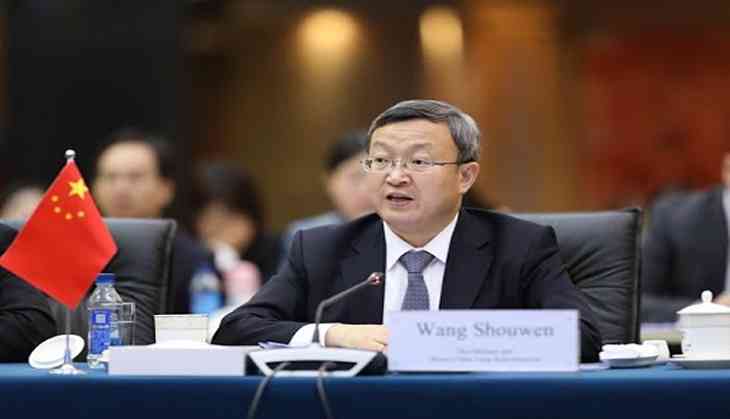Wang Shouwen: China will welcome India back to negotiations on RCEP

China will welcome India back to negotiations on the Regional Comprehensive Economic Partnership (RCEP) at an appropriate time, Chinese Vice Minister of Commerce Wang Shouwen said at a press conference on Monday, reported country's state media.
Wang said talks on the regional free trade deal are proceeding smoothly, with participating members in intense discussions on a few remaining issues, the Global Times reported.
The RCEP is a proposed free trade agreement in the Asia-Pacific region between the ten member states of the Association of Southeast Asian Nations (ASEAN), namely, Brunei, Cambodia, Indonesia, Laos, Malaysia, Myanmar, the Philippines, Singapore, Thailand, and Vietnam, and five of ASEAN's FTA partners--Australia, China, Japan, New Zealand, and South Korea.
India, which is also ASEAN's FTA partner, opted out of RCEP in November 2019.
According to Global Times, if RCEP can be signed this year, it would reverse the negative impact that the COVID-19 pandemic has had on regional trade and investment.
"Recognizing India as a valuable original participant, the 15 RCEP Participating Countries (RPCs) said they would welcome India's return to the negotiations, according to the joint statement of the 29th RCEP Trade Negotiating Committee (RCEP TNC) Meeting held via video conference in late April," the Global Times said in its report.
Earlier in January this year, Union Minister Piyush Goyal had called RCEP an 'unbalanced agreement'.
"RCEP was an unbalanced trade agreement, which was not fulfilling the guiding principles on which the RCEP was started. Therefore, India chose not to participate in it," Goyal had said in a session at the World Economic Forum (WEF) 2020.
Last year, India decided not to join the RCEP agreement as its key concerns were not addressed.
The key issues behind India's decision not to be part of RCEP included inadequate protection against import surge, insufficient differential with China, possible circumvention of rules of origin, keeping the base year as 2014 and no credible assurances on market access and non-tariff barriers.
(ANI)
Also Read: J-K: Mobile internet services suspended in Srinagar following encounter

